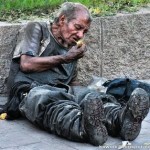– Sometimes, the climate news heads in a good direction as opposed to all the normal doom and gloom. This is one of those. – Dennis
– – – – – – – – – – – – – – – – – – – –
Some Greenland glaciers run slower in warm summers than cooler ones, meaning the icecap may be more resistant to warming than previously thought.
A UK-led scientific team reports the finding in the journal Nature, following analysis of five years of satellite data on six glaciers.
The scientists emphasise the icecap is not “safe from climate change”, as it is still losing ice to the sea.
Melting of the icecap would add several metres to sea level around the world.
But it suggests that one reason behind the acceleration in glacier flow, which so concerned scientists when it was first documented in 2002, will prove not to be such a serious concern.
“In their last report in 2007, the Intergovernmental Panel on Climate Change (IPCC) concluded they weren’t able to make an accurate projection of future sea level because there were a couple of processes by which climate change could cause additional melt from the ice sheet,” said Andy Shepherd from the University of Leeds.
“In their last report in 2007, the Intergovernmental Panel on Climate Change (IPCC) concluded they weren’t able to make an accurate projection of future sea level because there were a couple of processes by which climate change could cause additional melt from the ice sheet,” said Andy Shepherd from the University of Leeds.
“We’re addressing one of those processes and saying that according to the observations, nothing will change, so that process can probably be ruled out.”
In all five years studied (1993 and 1995-8), the speed of the glaciers increased with the onset of summer, as meltwater collected between the bottom of the glacier and the rock beneath, lubricating the flow.
But in the warmest years, the acceleration stalled early in the season; in relatively cool summers, it did not.
Even though the melting accelerated earlier in warmer years, by late summer the glaciers were 60% slower.
The explanation is that hotter summers cause so much meltwater to collect that it runs off in channels below the ice – meaning it does not lubricate the glaciers so efficiently.
– More… ➡
 One in seven Americans was living in poverty in 2009 with the level of working-age poor the highest since the 1960s, the US Census Bureau says.
One in seven Americans was living in poverty in 2009 with the level of working-age poor the highest since the 1960s, the US Census Bureau says.